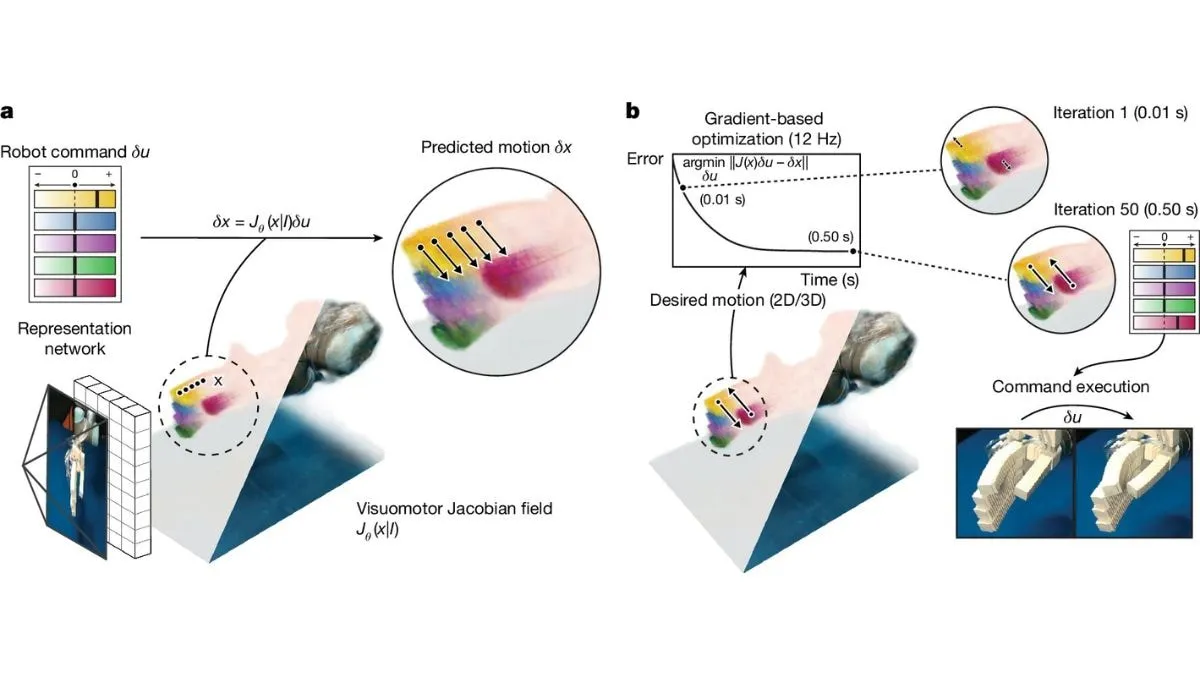MIT Researchers Develop Deep Learning Control System for Bio-Inspired Robots
Conventional robots used in industries and hazardous environments are effective for control and modeling but are limited in operating in confined spaces and challenging terrains. In contrast, soft bio-inspired robots are better suited for such environments. Researchers at MIT have pioneered a new approach, developing a deep learning control system that enables bio-inspired robots to follow commands using just a single image.
The study, published in the journal Nature as reported by Phys.org, involved training a deep neural network with multi-view images of robots performing a variety of tasks. This training enabled the network to understand and replicate movements based on a single image input. Unlike traditional control systems that require complex and costly designs, this new approach simplifies control mechanisms and enhances flexibility.
Revolutionizing Robotics Design
This innovative method liberates robotics design from the constraints of traditional techniques, such as precision manufacturing and reliance on rigid components. By leveraging a single-camera machine learning approach, researchers successfully controlled various robotic systems, including 3D-printed pneumatic hands and soft auxetic wrists.
While the system excels in high-precision tasks, it may not be suitable for applications requiring tactile feedback. Researchers propose integrating sensors and tactile materials to enable robots to perform more complex functions efficiently.
The future of robotics holds immense potential with advancements in deep learning control systems. MIT’s breakthrough opens doors for automating a diverse range of robotic applications with minimal sensor requirements.
For more information on this groundbreaking research, visit the official MIT website here.






